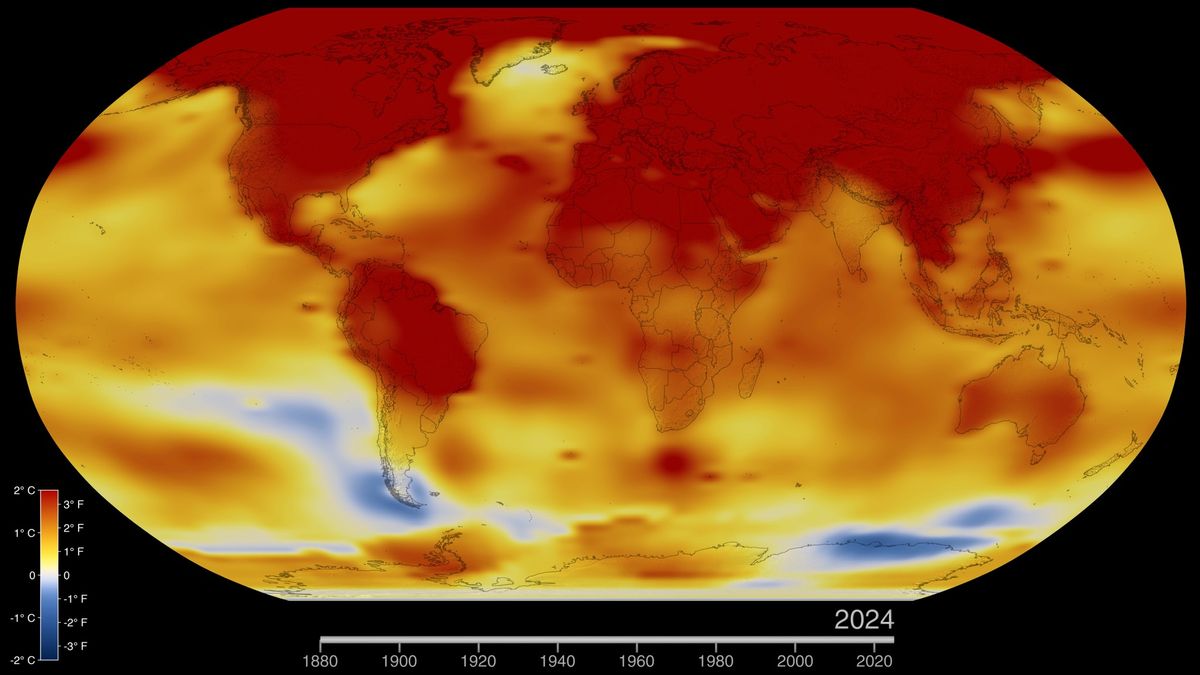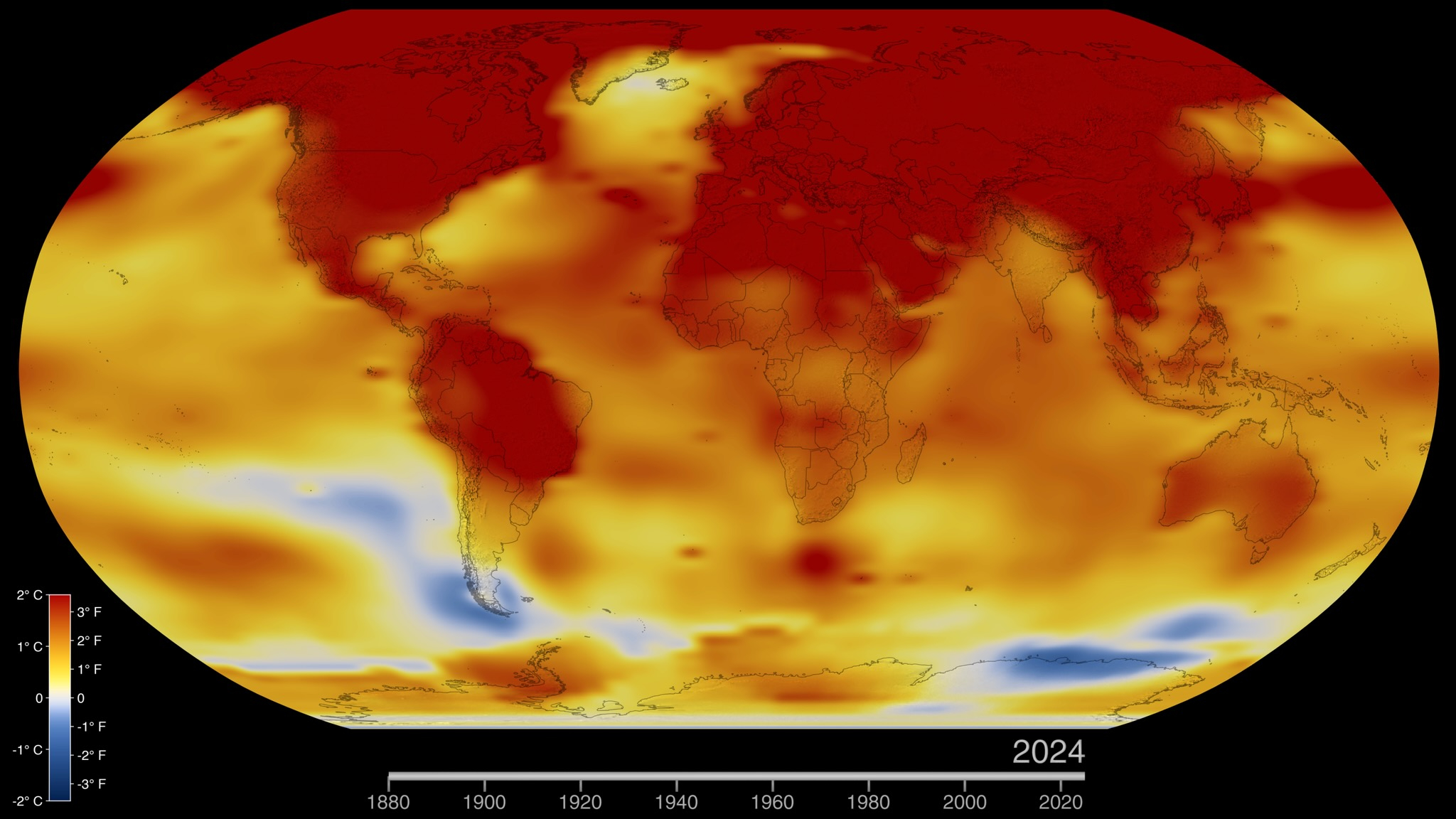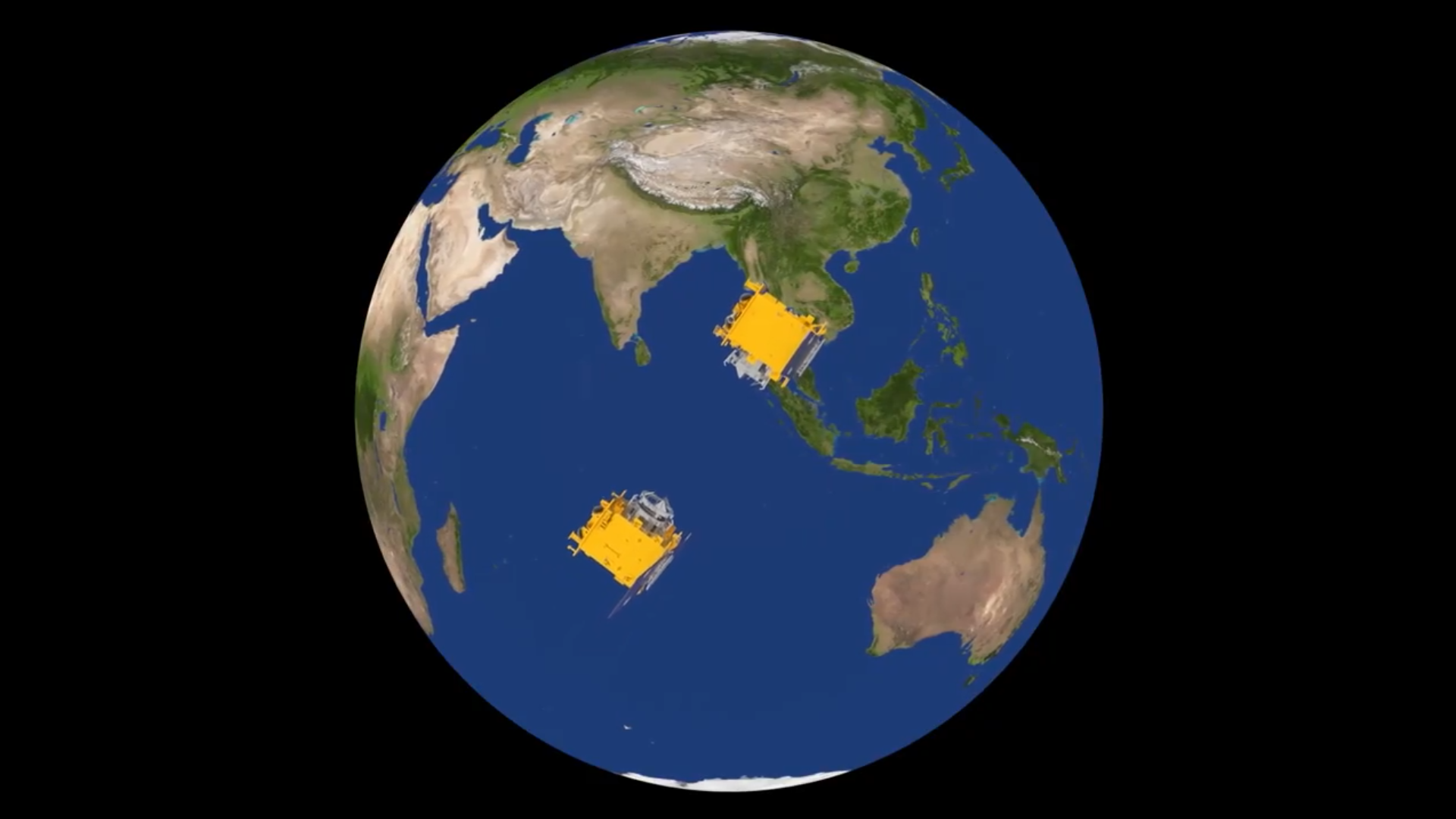Scientists have largely attributed this temperature rise to the increase of greenhouse gases, including carbon dioxide and methane, in Earth’s atmosphere since the Industrial Revolution. In the pre-industrial days of the 18th century, the carbon dioxide level in the atmosphere was approximately 278 parts per million (ppm). Today, it’s 420 ppm.
But there are likely other influences on 2024’s temperature rise, too. NASA noted that a particularly strong El Niño — a natural climate fluctuation — that began in fall 2023 likely pushed the average temperature up in 2024. Plus, scientists are still studying the effects of events like the January 2022 Tonga volcanic eruption, which introduced vast quantities of water vapor and sulfur dioxide into the atmosphere.
Related: The ‘safe’ threshold for global warming will be passed in just 6 years, scientists say
This probably comes as little surprise, but the news is official: 2024 was the warmest year on record.
“Once again, the temperature record has been shattered — 2024 was the hottest year since record keeping began in 1880,” NASA Administrator Bill Nelson said in a Jan. 10 statement. “Between record-breaking temperatures and wildfires currently threatening our centers and workforce in California, it has never been more important to understand our changing planet.”
In 2024, the global average temperature was 2.3 degrees Fahrenheit (1.3 degrees Celsius) above the mid-20th-century baseline (1951–1980) and 2.65 degrees F (1.47 degrees C) warmer than the mid-20th century average (1850–1900). That’s not too unexpected, given that our planet just experienced a 15-month heat streak — high-temperature records were broken monthly from June 2023 through August 2024.
These short-term influences aside, NASA scientists are quite concerned about the long-term side effects of greenhouse gas emissions on the climate.
“Not every year is going to break records, but the long-term trend is clear,” said Gavin Schmidt, director of NASA’s Goddard Institute for Space Studies in New York. “We’re already seeing the impact in extreme rainfall, heat waves and increased flood risk, which are going to keep getting worse as long as emissions continue.”






